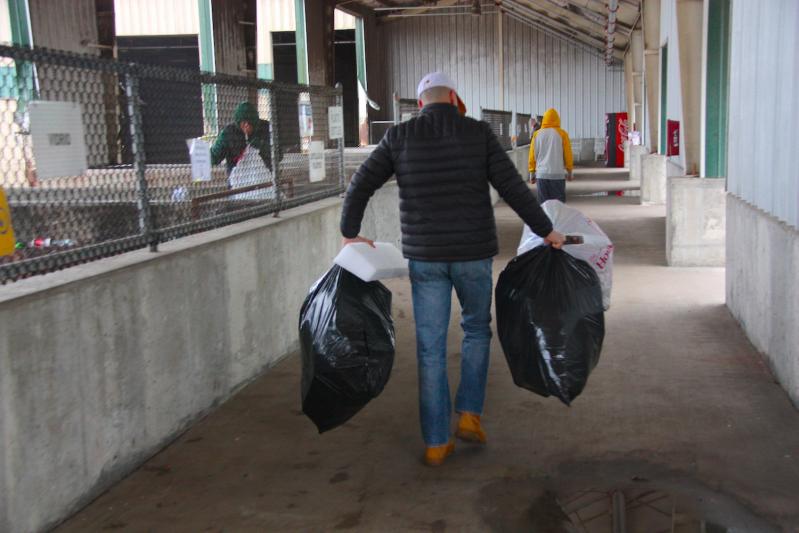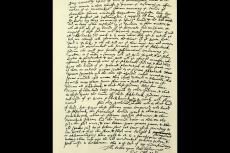East Hampton Town will soon embark on a composting pilot program, an effort aimed at diverting, recovering, and reusing residential food scraps to create compost and return it to the soil, Councilwoman Cate Rogers said on Tuesday.
Reducing food waste is one of the top solutions to reversing climate change. Nearly 40 percent of food is wasted in the United States, according to the hunger-relief organization Feeding America, and it does not all happen at restaurants and grocery stores: Nearly half of that total comes from households. Food waste creates greenhouse gases, "whether it's carbon dioxide if it's been open to the air, or if it's coming up as methane when it's anaerobically treated" such as decomposing in plastic bags in a landfill, said Mark Haubner, chairman of Riverhead Town's Environmental Advisory Committee.
"We are burning 100 percent of our municipal solid waste in the four incinerators up west and in Nassau County," Mr. Haubner said. "A ton of food scraps is turning into a ton of carbon dioxide." In Riverhead, he said, "we are spending $150,000 every month on tipping fees for our solid waste. If we were to pick out simply three tons per day at $100 a ton, we'd be saving the town $300 a day. Multiply that by 365, you're talking about enough money to get a recycling coordinator, to buy a new truck that manages food scraps all by itself. That's just at three tons a day" -- half of what is possible, he said.
In the five East End towns, there are nearly 60 tons of food scraps generated daily and "available as a resource for us to recover and reuse," Mr. Haubner said. "We are a bioregion," said Mary Morgan, a co-founder of Drawdown East End, "and we have to think about the impacts of the entire North and South Forks into Riverhead, and work with nature, not against it." The federal Environmental Protection Agency, she said, "uses compost as a best practice to mitigate stormwater runoff."
Compost also enriches soil, allowing for reduced use of chemical fertilizers. "It helps soil retain water," Ms. Morgan said. "That means less irrigation and lower stormwater runoff. It filters water to the aquifer, and it aids in carbon sequestration through plants and soil."
Mr. Haubner and Ms. Morgan told the East Hampton Town Board about a pilot program in Southold Town that they helped to run, in which 30 families participated over 30 days to divert food scraps from the waste stream. They sought approval from the town, ran a focus group, solicited the participating families and a farm that would receive the scraps, and purchased 60 buckets.
Over the 30 days, the participants diverted 1,000 pounds of food scraps from the waste stream, she said. "That is the U.S. average of a half-pound per person per day of food" being wasted. That, she said, translates into 2,000 pounds of greenhouse gases averted. If all 23,000 Southold residents diverted their food scraps, "that would be recovered and reused as compost," around two million tons per year, she said. "It would lower town costs substantially on trucking those food scraps away, it would lower our methane, and help us meet New York State mandates."
The pilot program also demonstrated that "people were willing to divert their food scraps away from the waste stream, and they wanted to," she said. "When they saw the volume of food they were wasting -- to me this is key -- they committed to lowering their food waste." The pilot program is ready to scale up, she said.
A ribbon-cutting ceremony is to happen today to launch a composting program in Riverhead, Mr. Haubner said. Compost will be brought to the town's yard trimmings facility, he said, and in researching other municipalities' composting programs it was determined that "the residents are very excited to get this stuff" -- compost -- "back at the end of the season. So I think we're going to be offering it to our program participants first, at the end of the year." Several town departments also want compost, he said, and "the farmers are more interested in us producing this than having to go to the expense and time and effort to do it themselves. Synergy between the farming, residents, and municipality is really starting to show itself very quickly."
"We're also looking for folks who'd like to join" a composting program in East Hampton, Ms. Rogers said. Those interested in participating have been asked to send an email to [email protected]. "More information will be coming," she said. "We'll have a full presentation on the plan for East Hampton. What really impressed me," she said, "is that we are really wasting a resource" by labeling food scraps waste instead of a resource. "So I hope to be able to bring soon, to the board and to the community, a pilot program."




